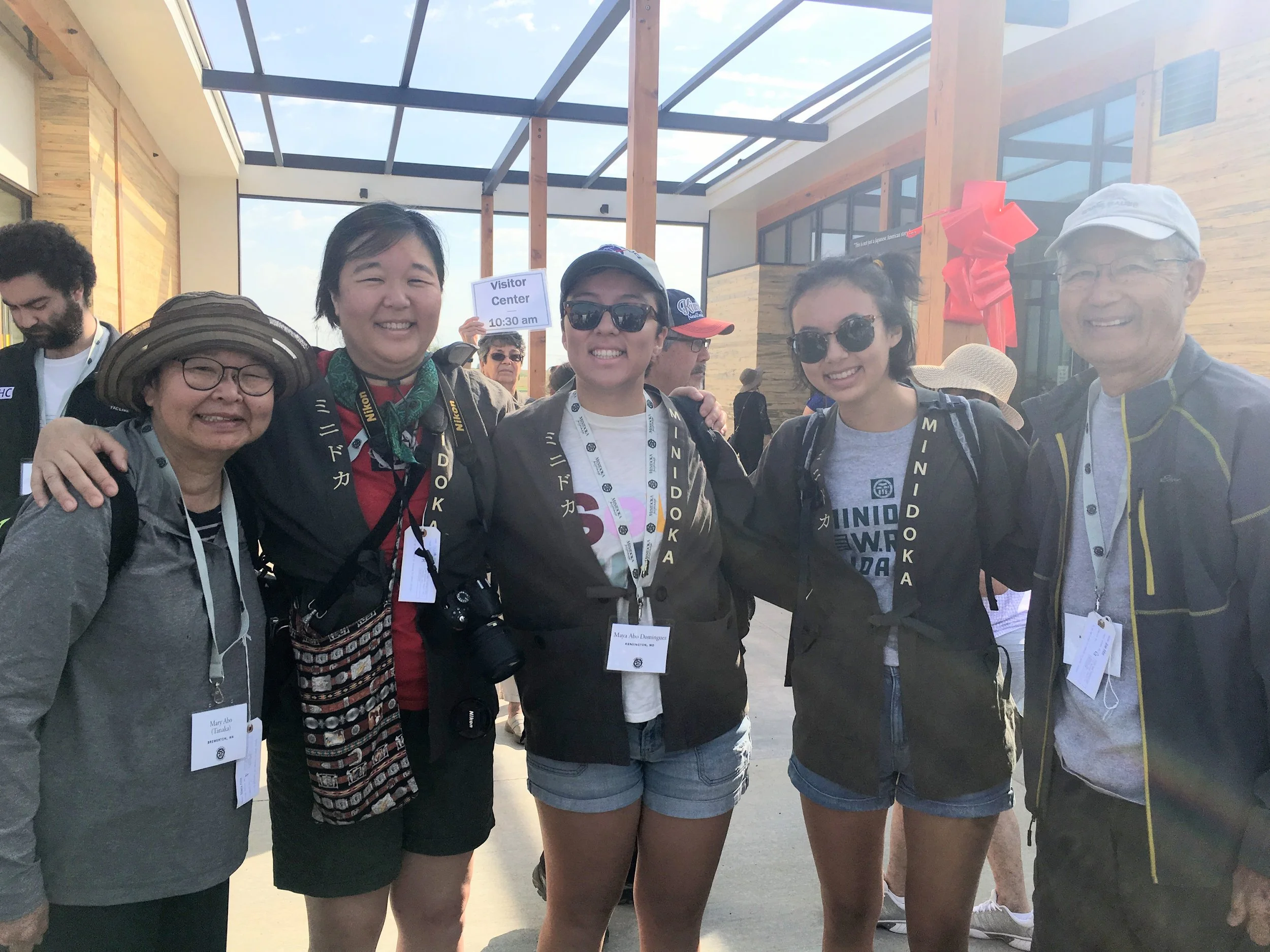The Abo (Tanaka) Family, Survivors + Descendants
Mary (Tanaka) Abo, Minidoka survivor; Joe Abo; Julie Abo; Aaron Dominguez; Maya Abo Dominguez; Aiko Abo Dominguez.
“The spirit of all who were imprisoned in Minidoka can be felt and heard in the swirling sand.”
We are a four-generation Minidoka family. When we make yearly pilgrimages to Minidoka National Historic Site, we sense many memories of our family being unjustly imprisoned for just looking like the enemy. It is important for us to preserve this story for future generations.
Our family pledged a gift for three years to Friends of Minidoka to help them preserve the Minidoka National Historic Site and our part of American History. Please join us and make a three year pledge to Friends of Minidoka.
Mary Abo, Survivor
Minidoka is an important part of my family history because we can still remember being imprisoned for just looking like the enemy. If a giant wind turbine project is allowed to be built close by, Minidoka will become an interpretative center separated from its essence as a prison camp. The experience of being unjustly cast out into the desert for visitors will certainly be distorted by the sight and sound of the 700 foot wind turbines. My family is donating to Friends of Minidoka to continue its efforts to preserve Minidoka National Park Site, a lesson in American History.
Julie Abo, Sansei, daughter of Mary Abo
We are a four generation Minidoka family who have come on pilgrimages here.
We sense many memories in the hot sand, the howling wind and the black sky.
We donate to Friends of Minidoka to preserve our part of American history.
If not us, then who? On December 8, 1941, my mother's father, Shonosuke Tanaka, was immediately arrested by the FBI as an "enemy alien" and separated from her mother, Nobu Tanaka, and three siblings, Alice, Bill and John, for two years. Later, in 1942, the rest of my mother's family was forcibly removed from the U.S. Territory of Alaska to Minidoka, in Jerome, Idaho where they were incarcerated along with members of the Tlingit Nation and others for three years. My grandfather wasn't reunited with them until 1944, two years and three months later. I grew up hearing the difficult stories of this incarceration and was instilled with a strong sense of civil rights, but I was never active in the post-WWII, post-Redress Japanese American community as a whole, nor the Minidoka community. Now, in my mid-fifties, as the older generation slowly passes on, I feel a deep responsibility to be part of the stewardship of this instructive part of American history. Every day, I feel that we must convey the many histories of this land and be sure the World War II incarceration of Japanese and Native Americans are not forgotten to inform our understanding and implementation of democracy and the future of our country. I think of our family and how that could easily be my daughters and me in this day and age. I hope you will join us and make a donation for the education of current and future generations. It's never too late!
Maya Abo Dominguez, Yonsei, daughter of Julie Abo
History is an essential part of knowing who we are, as people, and as a country. I want to keep stories of the Incarceration like my grandparents’, alive for generations to come, so we don’t forget who we are or where we come from.




